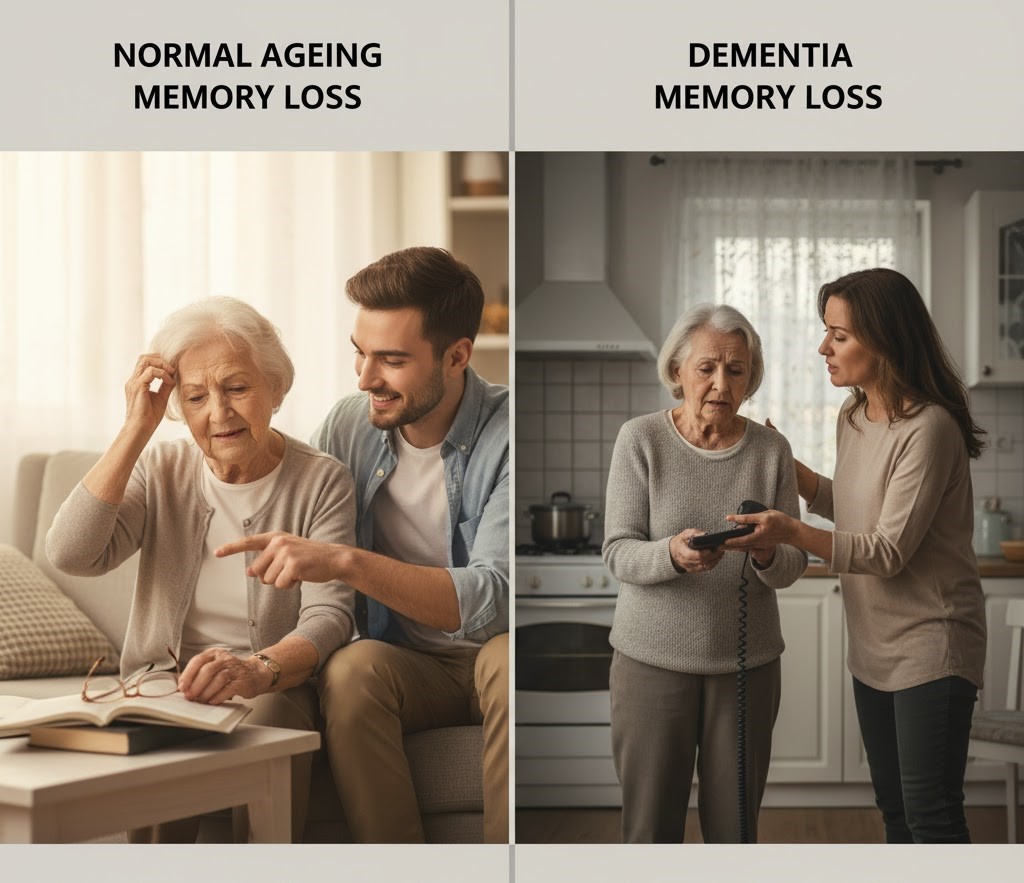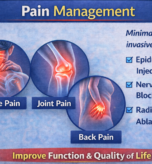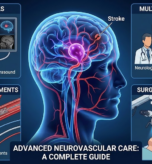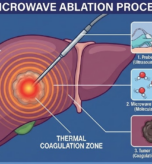As people age, memory changes are common. Forgetting small things, like where you put your glasses, is often normal. But when memory loss keeps happening and affects daily life, it may be dementia memory loss. Learning the difference helps families take the right steps and seek help early.

Normal Ageing and Memory Changes
The brain slows down as we get older. This is natural. Many memory changes in older adults are mild and not a sign of disease.
Examples of normal ageing include:
- Forgetting names but remembering them later
- Misplacing items like a phone or keys
- Taking longer to learn new things
- Sometimes needing reminders for appointments
These are signs of age-related forgetfulness. They do not stop people from living independently. In addition, healthy habits like eating well, exercising, and staying mentally active support brain health and reduce decline.
Dementia Memory Loss: More Than Forgetfulness
Dementia symptoms are different. They are stronger and disrupt daily life. Dementia is not normal ageing. It is a brain disease, often caused by Alzheimer’s disease or other conditions.
Early signs of dementia may include:
- Forgetting recent events and not recalling them later
- Struggling to follow conversations or instructions
- Having trouble managing money or cooking meals
- Repeating the same questions many times
- Getting lost in familiar places
- Changes in mood or personality
These signs point to cognitive decline. Unlike mild forgetfulness, they stop people from living independently.
Dementia vs Normal Ageing: Key Differences
The main difference is impact on daily life.
- Normal Ageing: Misplacing keys but later finding them.
- Dementia: Putting items in odd places, like keys in the fridge.
- Normal Ageing: Forgetting a word but recalling it later.
- Dementia: Repeatedly struggling to find words or finish sentences.
- Normal Ageing: Missing a bill payment once.
- Dementia: Often failing to manage money or pay bills.
If memory problems make daily living hard, it may be dementia, not normal ageing.
Mild Cognitive Impairment: An In-Between Stage
Some people experience mild cognitive impairment (MCI). This stage is more serious than normal ageing but not as severe as dementia. People with MCI notice more memory issues, but they can still live independently. Some remain stable, while others later develop dementia. Regular check-ups are important.
Dementia Risk Factors and Causes
Some dementia risk factors cannot be controlled, such as age or family history. However, lifestyle choices also play a big role.
Common risks include:
- High blood pressure, diabetes, or heart disease
- Smoking and heavy drinking
- Poor diet and little exercise
- Social isolation or untreated depression
- Lack of brain stimulation
Managing these risks supports healthy ageing and lowers the chance of serious memory problems in seniors.
When to Seek Medical Help
If forgetfulness seems worse than normal, it is best to see a doctor. Tests, scans, and blood work can help find the cause of memory loss. An early diagnosis gives better treatment options and access to dementia care.
Supporting Brain Health
Dementia cannot always be prevented. Still, healthy habits improve memory and may slow decline.
- Stay active to keep blood flowing to the brain
- Eat a diet rich in fruits, vegetables, and fish
- Keep the brain busy with puzzles, reading, or learning skills
- Stay connected with friends and family
- Manage long-term health conditions
These steps encourage healthy ageing and protect brain function.
Final Thoughts
It is important to know the difference between normal ageing memory and dementia memory loss. Forgetting sometimes is natural. But when memory loss is frequent and affects daily living, it may be dementia. By spotting the signs early and making healthy choices, families can protect brain health and plan better care.
Read More Blog
Urgent Diabetes Warning Raise Early Heart Risk
Silent Stroke Symptoms: Critical Early Signs, Hidden Risks & Proven Prevention






